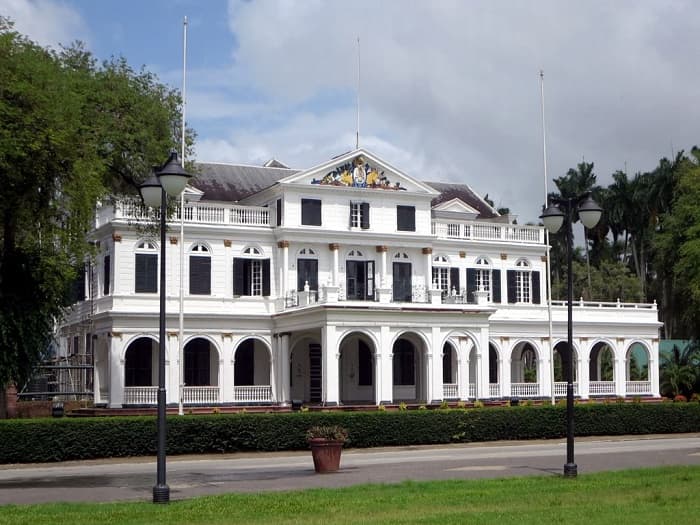
The Golden History of Suriname: From New Amsterdam to Modern Prosperity
Discover how Suriname transformed from a colonial trading post exchanged for Manhattan into one of South America's premi...
Read more
Environment
Understanding Suriname's unique position as one of the world's most pristine rainforests and the challenges of balancing conservation with sustainable development.
Suriname is covered by 93% tropical rainforest—the highest forest coverage of any nation on Earth. Most of this is primary forest, undisturbed by logging, agriculture, or large-scale development. The Guiana Shield region in Suriname is one of the world's most biodiverse areas, harboring jaguars, giant river otters, tapirs, over 700 bird species, and endemic species found nowhere else on the planet.
Suriname's forests sequester more than 900 million metric tons of carbon dioxide. The country is one of only three nations worldwide that functions as a carbon sink—absorbing more carbon than it emits. This makes Suriname's forests critical to global climate stability and biodiversity protection.
In 2022, Suriname pledged to permanently protect 90% of its forests, far exceeding the global 30x30 conservation goal. A coalition of international partners committed $20 million to establish and manage protected areas. The government plans to update conservation laws to strengthen forest protections and recognize the ancestral lands of Indigenous and Maroon communities who have stewarded these forests for centuries.
Small-scale and artisanal gold mining (ASGM) is the primary driver of deforestation in Suriname. Mercury used in gold extraction contaminates waterways and causes severe health impacts to local communities and ecosystems. This creates a tension between economic opportunity and environmental preservation that Suriname continues to address.
Suriname is implementing programs to reduce mining's environmental impact. The EMSAGS project promotes mercury-free mining technologies and environmentally responsible extraction methods. The Minamata Convention commits Suriname to reducing mercury use in artisanal mining. Indigenous communities and international partners work together to monitor forests and combat illegal mining activities.
Suriname's rainforest represents hope for global climate and biodiversity protection. The country faces the challenge of balancing economic development with environmental stewardship—a challenge increasingly relevant worldwide. International support for conservation, sustainable mining practices, and Indigenous land rights is essential to preserving this natural treasure.

Discover how Suriname transformed from a colonial trading post exchanged for Manhattan into one of South America's premi...
Read more
Historic agreement establishes Baseline Gold as the premier validated gold export brand, with full Central Bank certific...
Read more
Government of Suriname grants Baseline Gold comprehensive export license, authorizing large-scale gold exports to intern...
Read more